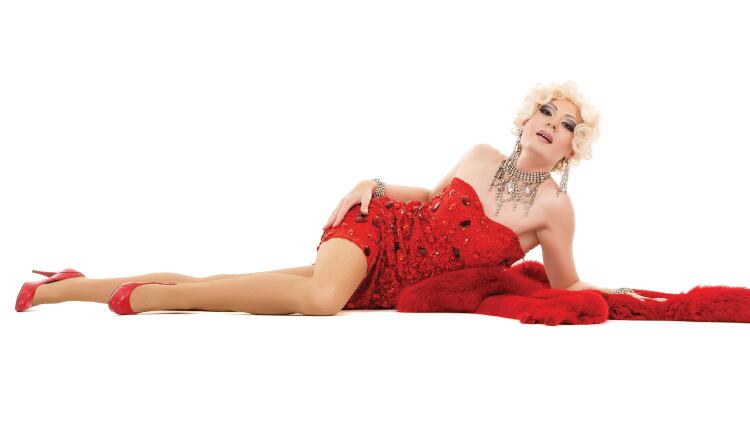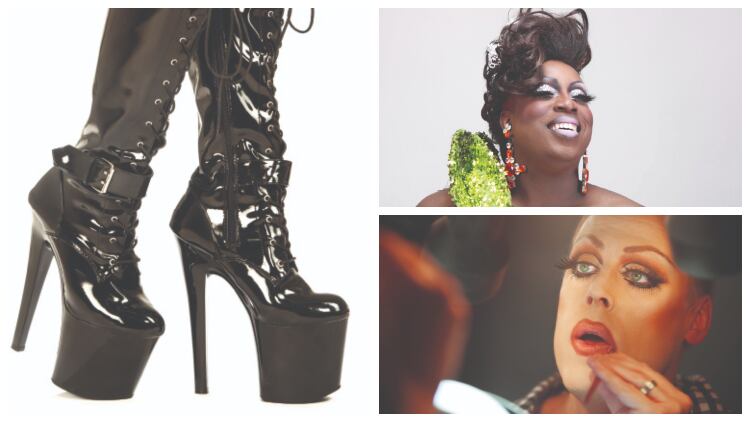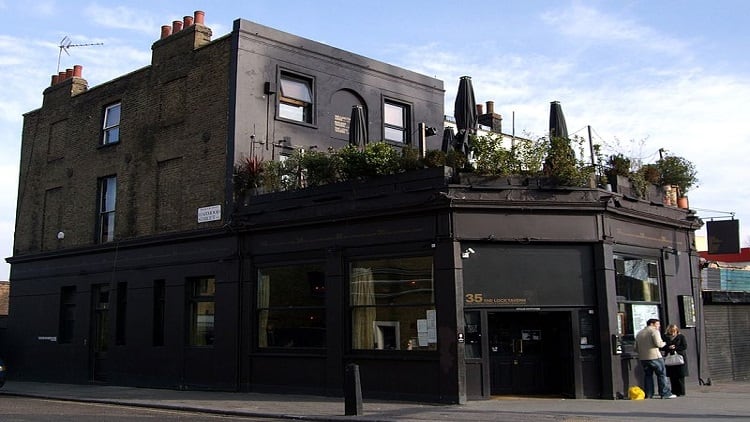RuPaul’s Drag Race has lately pitched drag queens into the limelight – which is, of course, exactly where they want to be.
The reality TV show that began 10 seasons ago on a niche LGBTQ+ channel in the US is now available worldwide through Netflix. No one, except probably Netflix, knows the scale of the audience, but the noise it’s generating on social media suggests that we’re in a transformative moment in drag culture.
Indeed, there is controversy over whether drag has got a little too popular, whether its challenge to the mainstream is in danger of dilution.
Critics including Paul O’Grady, who, as Lily Savage, must be Britain’s best-known drag act, have shown concerns that Drag Race is more pageant than performance, with its perfectly coiffuredcontestants being all slap and no personality.
Yet with viewing parties being staged in straight as well as gay bars, the show has opened up the possibility of widening the potential audience for drag nights at the pub. And drag acts today can offer a rich variety of performance, from DJ sets to lip-sync cabaret and from stand-up comedy to political impressions of Melania Trump, Theresa May – even Nicola Sturgeon.
Newcomers to the genre are stretching drag’s own boundaries. There are drag kings, of course, and there are women who dress up as women, in an exaggerated style.
Drag performances in the 21st century do not come without their own controversies, but there’s an air of excitement about the talent and the possibilities for alternative creative expression.
In fact, the issue for drag acts can be finding places to perform. LGBTQ+ bars have suffered a wave of closures in recent years, and a lot of traditional gay venues don’t always meet the standards the modern audience expects.
As performer John Sizzle argues, there is a gap in the market for a quality offer that doesn’t just stage a drag night but dresses it well and delivers a strong drinks range and good service alongside it.
Drag can be a great visual spectacle, but it’s important the acts you choose have substance, that they are genuinely funny and different, and aren’t afraid to challenge the audience by taking it to the edge.
And pubs are in a great position to make sure it’s open to all.
Culture of drag
Drag is deeply embedded in British culture. In theatre, men have dressed up as women characters for centuries. In his time, Shakespeare’s plays featured an all-male cast – though that was a result of the law banning women actors, of course.
There is more to drag than cross-dressing, though. You would be pushed to describe Norman Bates as a drag queen when he’s impersonating his dead mother in the film Psycho. Drag requires portraying an exaggerated femininity, and what you might call a ‘camp’ sensibility.In her 1964 essay Notes on Camp, the American critic Susan Sontag described that sensibility as “a good taste of bad taste”, which sums it up smartly.
With that comes the humour, and a challenge to mainstream culture.
Drag as we might recognise it first makes its appearance on the British stage in the buxom shape of the pantomime dame, towards the end of the 19th century.
But it’s not until the 1930s that it becomes properly associated with the gay scene. Back then, of course, homosexuality was illegal and gay social life was driven into underground clubs where drag acts emerged as a way of challenging gender stereotypes and laughing off persecution.
Drag queens found themselves at the centre of the movement for gay liberation in the 1960s, and when homosexuality between men was finally decriminalised in 1967, the public house was opened to them as a place they could perform.

The Glory
The Glory is part of a new wave of drag venues, an east London pub in Homerton that four years ago was taken over by four prominent members of the LGBTQ+ community and completely redesigned just the way they wanted it. It immediately shot to the top of the list for a good night out.
A packed programme of events includes the more traditional lip-syncing and stand-up, but there’s also live music, film screenings, performance art, cabaret, life-drawing classes, talks and even some serious theatre.
As a brand that extends beyond the pub walls, the Glory also takes the show on the road, to festivals and, for three weeks in July, to the National Theatre where acts are showcased under the River Stage banner.
On the bar you’ll find that the Glory avoids the usual mainstream beer brands. Its best-sellers are Fuller’s Frontier lager and the Japanese brew Kirin. There’s a creative cocktail list, and Aperol spritzes have been flowing fast in the summer’s heatwave.
There’s no food menu yet – but according to founder and director John Nolan it’s “on the horizon”.
Nolan performs at the Glory as John Sizzle. His fellow founders and directors are fellow performer Jonny Woo, bar operator Zoe Argiros and film-maker Colin Rothbart.
They all knew each other before realising each was looking for a pub that could be a new venue – so they teamed up and bought the lease on a site in Homerton once known as the Paradise that had been closed for some time.
“Drag is not always performed in the best environment for customers and we wanted to create a venue that was somewhere for us to perform and also somewhere people can enjoy quality products and drinks,” says Nolan.
“We saw a gap in the market for that and we decided to put our money where our mouth is. The Glory consolidates the experience of the four of us. It’s an ideal version of a drag venue, if you like. It’s a unique kind of space that’s hard to find these days, especially in east London. Somewhere we could mould to our own vision.”
There’s a bar and a stage, of course, but most importantly the Glory is what Nolan describes as “an all-encompassing safe space where anyone, no matter their race, age or special needs, can
feel free to express themselves. And alongside that, we offer quality deals, a good drinks menu, cocktails and a brilliant service.”
There was no problem finding a market for such an offer.
“All four of us have high profiles around here, so people knew it was coming. We didn’t need a big launch – we had queues down the road on opening day – we were already infamous!”
A heavy use of social media keeps the Glory in the public eye – it even has its own social media department – and it reaches out to audiences that stretch beyond the LGBTQ+ community. Nolan believes drag has a broad appeal for the British population.
“The UK has a huge tradition of drag, going back to Shakespeare and including panto. It’s always been around, a standard of British culture,” Nolan adds.
“If you only focus on the LGBTQ+ audience you’re cutting your market down. From a financial point of view, it’s not a good idea. So we go for a broader, alternative audience. Perhaps not Mr & Mrs Joe Bloggs because the acts can be challenging. But they are always humorous and non-aggressive. Our USP is alternative artistic expression, and it’s inclusive, appealing to all ages ranges.”
For Nolan, the Glory is a true public house in that sense but one not bound by tradition, that keeps up with a demanding audience.
“We always try to bring in surprises for people, introduce elements of newness. We’re constantly changing the décor, doing a little bit extra. You need to keep moving.
“It’s important too, that we offer quality and people don’t feel they’re being ripped off. Everyone wants a good experience for their money.”
The Marlborough
The Marlborough’s current management is celebrating 10 years at the Brighton pub and theatre with a year-long series of events – including July’s Trans Pride Season, part of the city’s wider Trans Pride celebration.
With changes to the 2004 Gender Recognition Act allowing people to self-declare their own gender without having to go through bureaucratic procedures, trans people are finding themselves at the sharp end of a fierce debate – so the Marlborough’s initiative can’t help but be political. With financial backing from the Arts Council, the pub is staging performance and activity including Jo Hague’s ‘loud & messy’ punk tribute to Britney Spears, a Trans Pride Art Night, a literary salon hosted by author and journalist Juno Dawson, and a trans life drawing workshop. “It is important for us to showcase performance representative of a wide range of LGBTQ+ identities with radical and innovative work,” says creative producer Abby Butcher.


